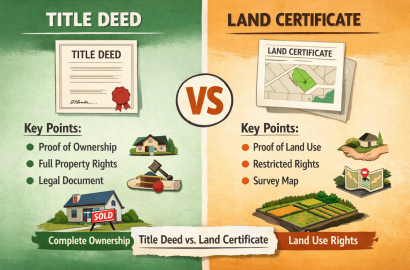What’s Your Money Personality?
Many people are sick, not always from physical ailments, but from financial illnesses that silently take a toll on their well-being. Financial health is just as crucial as physical health, and yet it’s often overlooked. In Kenya, for instance, 62% of the population reports having a monthly income. But having an income is one thing; what you do with that income is what determines your financial health.

One often overlooked factor in establishing financial well-being is understanding your money personality, your emotional and behavioral relationship with money. According to Morgan Housel in The Psychology of Money, how we think about money is shaped by our upbringing, experiences, culture, and even trauma. Over time, these factors mold us into certain money personality types that influence how we spend, save, borrow, or invest.
Let’s dive into the five most common money personality types and see where you might fit in.
1. Big Spenders
Big spenders are drawn to luxury. They love new gadgets, fashionable clothing, and shiny cars. They enjoy making statements with their purchases and aren't afraid to spend, often without hesitation. They typically aren't bargain hunters and may even see budgeting as restrictive.
Example: Eric, a 35-year-old marketing executive in Nairobi, upgrades his phone every year and dines out at trendy restaurants almost every weekend. Although he earns a decent salary, he rarely saves and often relies on his credit card.
Tip: Spenders should focus on striking a balance between lifestyle and savings. Small adjustments, like setting aside 10% of every paycheck before spending,can make a big difference over time.

2. Savers
Savers are the polar opposite of spenders. They feel secure when money is sitting in their bank accounts. They rarely splurge, hate debt, and often find joy in being financially prepared. Their frugality can be a strength, but it may sometimes limit their experiences or returns on investment.
Example: Miriam, a schoolteacher in Eldoret, lives on a strict budget and prefers to keep her money in a savings account. She avoids shopping unless it’s absolutely necessary and is reluctant to invest in anything with risk—even if the potential rewards are high.
Tip: Savers should consider learning about diversified investment options like SACCOs, government bonds, or mutual funds to grow their money without taking on too much risk.

3. Shoppers
Shoppers often shop to feel better. They gain emotional satisfaction from buying—even if the items are unnecessary. Unlike big spenders, shoppers enjoy hunting for bargains and discounts. They may be aware of their overspending but find it difficult to stop.
Example: Linda, a university student in Thika, loves the thrill of online sales. She finds herself buying clothes and accessories she doesn’t need just because they’re on offer. At the end of the month, she struggles to pay her data bills or contribute to her chama.
Tip: Shoppers can benefit from setting a spending cap and using budgeting apps like M-Pesa’s "Pochi la Biashara" or "Tala Wallet" to track their purchases.

4. Debtors
Debtors often live beyond their means. They spend more than they earn and rarely keep track of their expenses. Unlike shoppers or spenders, their behavior is less about enjoyment and more about a lack of planning or awareness. Debtors can easily fall into financial stress due to mounting bills and unpaid loans.
Example: Kevin, a boda boda rider in Kisumu, takes multiple mobile loans through apps like Fuliza and Branch just to get through the week. At month’s end, nearly half his income goes toward repaying debts.
Tip: Debtors need to pause and reflect on their financial habits. Using tools like a debt snowball plan—starting with small debts first—can help create momentum toward financial recovery.

5. Investors
Investors are proactive, strategic, and intentional with money. They aim to grow their wealth and often focus on long-term gains. They take calculated risks, regularly monitor their portfolios, and are guided by financial goals.
Example: Grace, a civil servant in Nakuru, contributes to her pension fund, invests in government treasury bills, and owns a rental property. She reviews her finances quarterly and constantly seeks advice from financial advisors.
Tip: Investors should continue staying informed and open to new opportunities, such as green investing or tech start-ups, but always align them with long-term goals.

Making Changes: Growing into a Healthier Financial Self
No money personality is inherently bad. But like any habit, financial behavior can be improved with awareness and small changes. Once you understand your dominant type, try these tips:
- Spenders: Shop less impulsively. Try the 48-hour rule—wait two days before making big purchases.
- Savers: Explore low-risk investments. Your money can do more than just sit in a savings account.
- Shoppers: Set monthly spending limits and avoid shopping when emotionally triggered.
- Debtors: Start tracking every shilling and stick to a repayment schedule. Use tools like Excel sheets or apps like Money Lover.
- Investors: Stay updated and diversify. Consider financial literacy workshops or joining investment groups like Centonomy.
Final Thoughts
Understanding your money personality is the first step toward achieving lasting financial health. It empowers you to take control, make better decisions, and align your actions with your goals. So, which one are you? More importantly, who do you want to become?
All the best as you climb your financial ladder, one smart decision at a time.
💰 Ready to Take Control of Your Financial Future?
Understanding your money personality is the first step toward building real financial wellness. Whether you're a spender, saver, debtor, or investor,you can make smarter money choices starting today.
📲 Talk to Our Financial Literacy Desk Today
With Great Fortunes Properties Ltd, you're not just managing money—you’re building wealth, safely and confidently, from anywhere in the world.
WhatsApp: +254 707 333 888 or 0780 013 853
Email: info@greatfortunesproperties.com
Website: www.greatfortunesproperties.com
💡 We’ll guide you every step of the way—from financial awareness to property ownership. Secure your future the smart way.
Related posts:
Learn the difference between a title deed and a land certificate, why it matters when buying land, and how to protect your property investment with Great Fortunes Properties.
Saving consistently and investing in land is a powerful way to build long-term financial security. Land offers stability, steady value growth, and a reliable store of wealth. By combining disciplined saving with smart land investment, you reduce financial risk, avoid...

